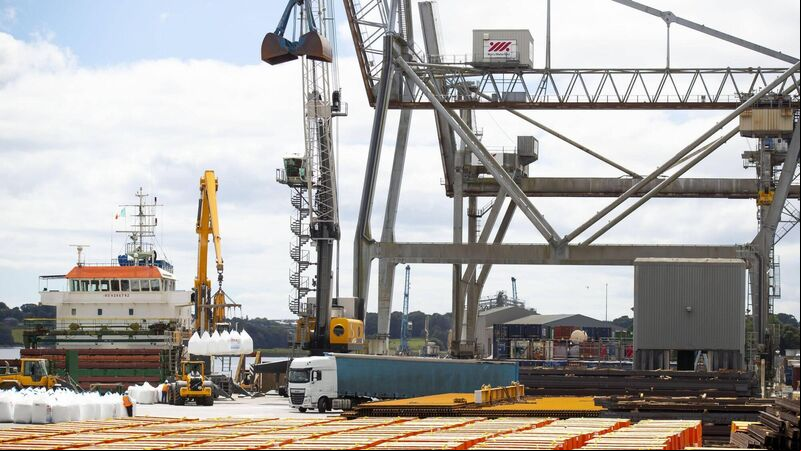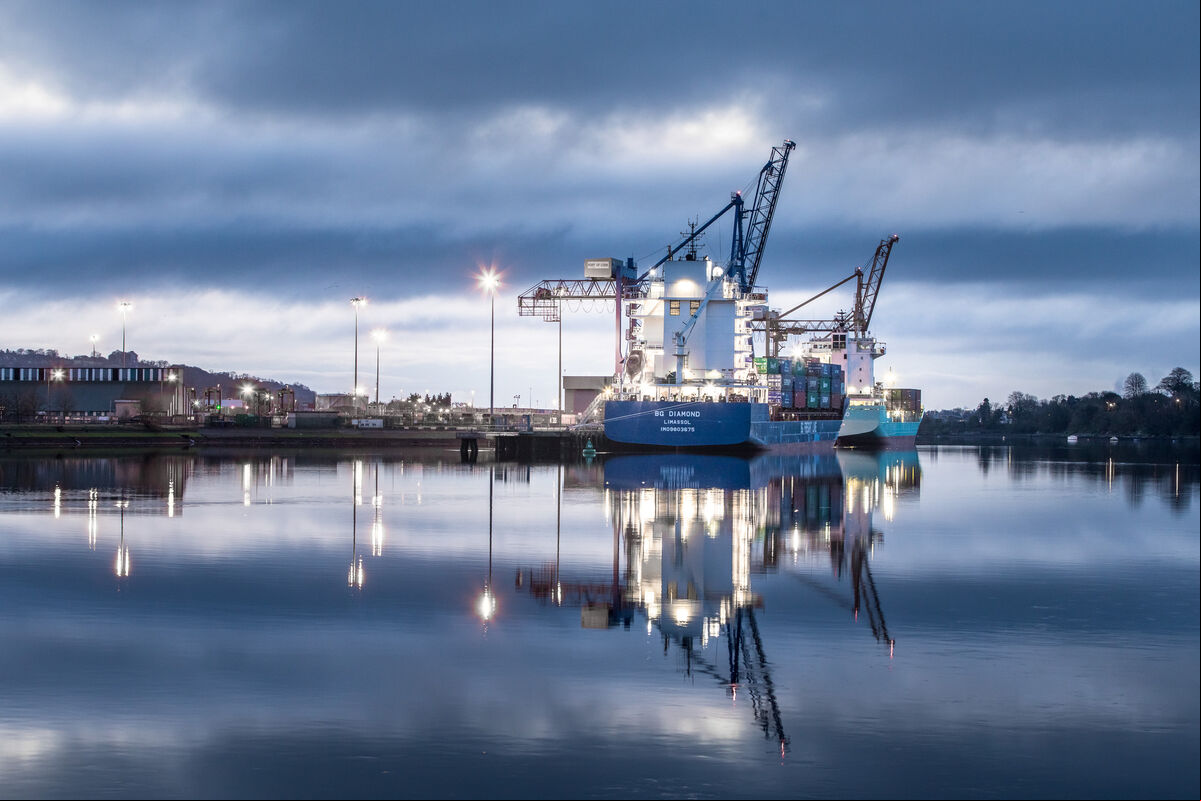Calls for investment to make Cork harbour and Port of Cork leader in offshore wind energy

Calls have been made for investement to ensure that Cork dockyard and the Port of Cork can become leaders in offshore wind energy development.
Pat Brennan, Deputy CEO of Doyle Shipping Group, is spearheading plans to make their facility at Cork dockyard a leader in offshore renewable energy development. “We have a fantastic location in Cork which would suit projects off the south and south-east coasts," he said.
"We hope to put forward a planning application for the improvements we need later this year but from the State, whether directly or through ISIF (Ireland Strategic Investment Fund), would really help to accelerate the process.”
Meanwhile, the Port of Cork Company (PoCC) said it believes the Irish Government has made significant progress in developing the policy for offshore wind energy and it welcomed the recent publication of the Offshore Renewable Energy Development Plan II (OREDP II).
Fixed-bottom wind turbines are the only proven offshore wind technology currently in operation at scale in jurisdictions around the world, the PoCC continued, adding it believes that it is the most practical and cost effective option to help Ireland achieve the short term target to deliver 5 GW of offshore wind by 2030.
Conor Mowlds, Chief Commercial Officer with PoCC stated: “The Port of Cork can be a key enabler for Offshore Renewable Energy (ORE) as we are the only port in the Republic of Ireland with planning permissions already in place for quay infrastructure developments to ORE. To make this happen we are working closely with a number of stakeholders, including funding partners.” The development of onshore infrastructure to aid the ORE industry is a major focus for the Port Masterplan to 2050, which has recently been through a public consultation process and is due to be officially launched in a matter of weeks.
As well as the development of onshore infrastructure, plans to the renewable energy sector within the Port Masterplan to 2050 also include taking advantage of the port’s deep water channels and berths, reclaiming land to accommodate large project cargoes for offshore wind marshalling and assembly activities, leasing landside and/or near shore storage, and providing access to berth and quays for operation and maintenance activities.
The Cork Chamber of Commerce highlighted the need for investment ton ensure Ireland can reach its potential in of offshore wind development.
“The Port of Cork must receive the investment it needs to fully harness the benefits of its strategic location to become a major offshore wind centre," said Director of Public Affairs, Sustainability and Communications at Cork Chamber, Rory Kelleher.
“With its unique position as the world’s second-largest natural harbour, Cork has a key role to play in Ireland’s offshore wind and hydrogen story and in its ability to meet its 2030 targets.”

The Irish Port Funding study by Wind Energy Ireland echoes previous calls by Cork Chamber for immediate investment in the port to enable offshore wind development, and warnings about the consequences of inaction and a failure to move fast enough to grasp the renewable energy opportunity.
Justin Moran, Director of External Affairs with Wind Energy Ireland, said: “Wind energy projects off the south coast of Ireland will be critical to cutting our carbon emissions and reducing our dependence on imported fossil fuels.
“We are going to need ports from which we can build these wind farms and also as homes for O&M bases once the wind farms are operational.
"The city has a number of facilities like Port of Cork and Cork dockyard which are already thinking ahead to the opportunities presented by the development of offshore wind energy.
"We want to see Irish wind farms being built and operated from Irish ports, creating jobs and providing investment opportunities for local businesses.
Cork City Councillor Dan Boyle (GP) said there are major economic benefits from offshore wind developments. “One is the actual energy and the construction of them offshore, the employment opportunities, which spill over especially into the port towns nearest to where the offshore windfarms are going to be located,” he said.
Cllr Boyle also stated that, if the windfarms can be built offshore, this will benefit the service industries located onshore. However, he added that the concern is that the native offshore windfarm industry will not be up and running by the time the first major windfarms are put in place.










 App?
App?


